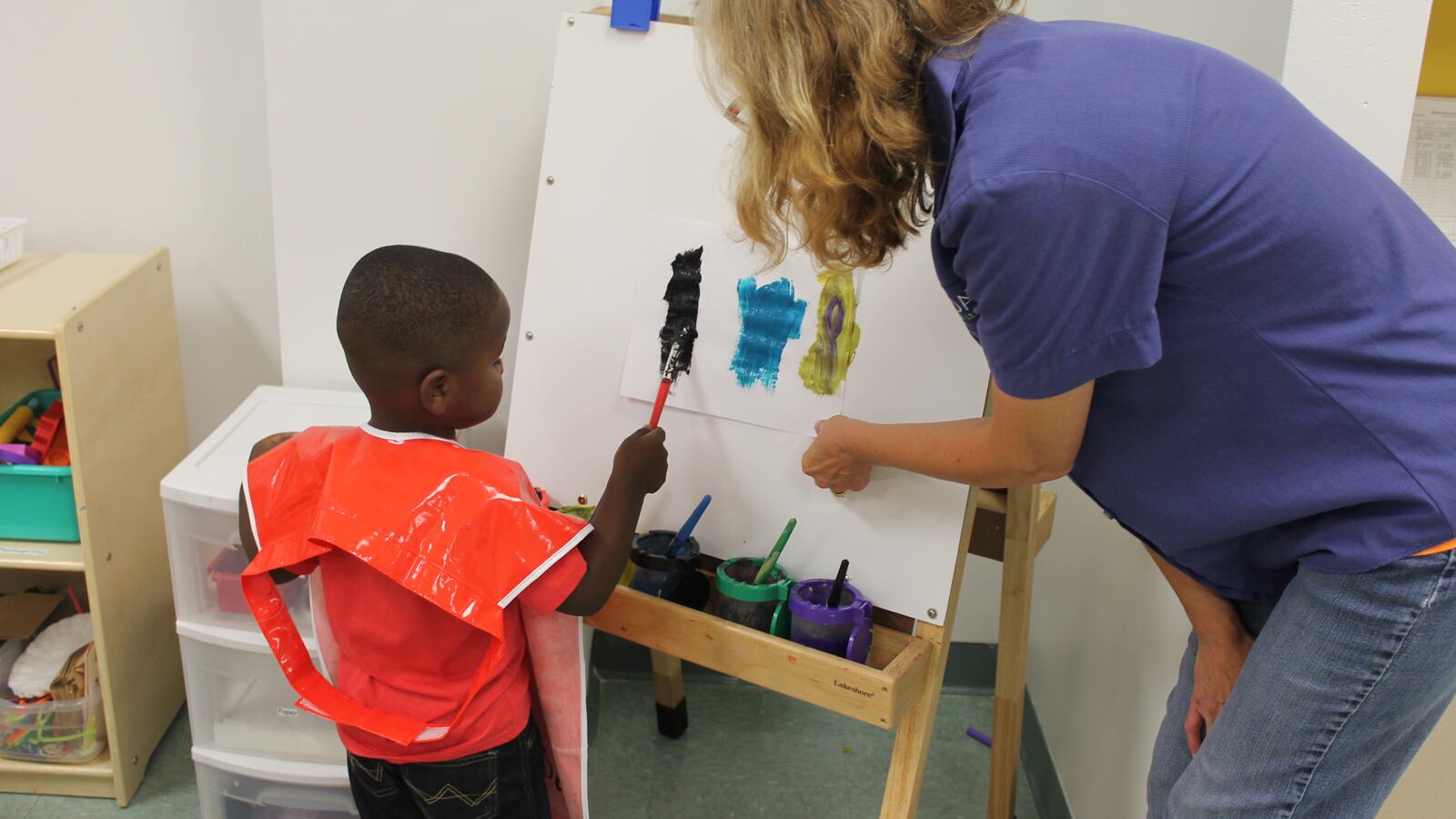Last year’s statewide teacher rallies and this year’s Denver teacher strike shined a bright light on Colorado’s lower-than-average teacher pay.
But less well-known is the wide salary gap between public elementary school teachers and their preschool counterparts. Last year, lead preschool teachers in district-run schools made $30,500 on average, nearly $22,000 less than public elementary school teachers, according to a new report from the National Institute for Early Education Research at Rutgers University.
While public preschool teacher pay is low in many states, Colorado is close to the bottom, according to the institute’s data. It’s a problem that makes it hard for preschool providers to recruit and retain qualified teachers, and is one reason state early childhood leaders created a three-year plan to boost the early childhood workforce.
Of the 28 states that reported salary data for public preschool and elementary teachers in the new report, only four had larger pay gaps than Colorado — California, Florida, Maryland, and Montana. The yawning divide between teachers who serve 3- and 4-year-olds and those who serve older children is fueled in some states by lower educational requirements for preschool teachers.
In Colorado, preschool teachers — unlike K-12 teachers — aren’t required to have teaching licenses from the state education department, a credential that requires a bachelor’s degree.
About a quarter of school districts, including Denver, Boulder Valley, and Colorado Springs 11, have adopted policies requiring lead preschool teachers to have that state education department license and be put on the same salary schedule as K-12 teachers, according to a 2018 state report on Colorado’s publicly funded preschool program. Another 20 percent of districts don’t require the state education department license, but if preschool teachers have it they’ll pay them on the K-12 schedule.
About half of states require preschool teachers in both public and private programs to have bachelor’s degrees. Colorado’s emphasis on local control over statewide mandates and its perennial shortage of early childhood teachers makes such a requirement unlikely any time soon.
In addition to its one-time look at early childhood workforce policies and pay, the institute’s “State of Preschool 2018” report covered the usual ground of state preschool spending, enrollment, and quality. Colorado’s rankings in the report typically don’t change much from year to year.
Colorado did slightly worse than last year in the preschool access category, which measures the percentage of preschool-age children enrolled in a state’s publicly funded preschool program. The state ranked 28th for 4-year-old access, down from 25th, and 11th for 3-year-old access, down from 10th. Like last year, it ranked 39th for state preschool spending and met five of 10 quality benchmarks.
Colorado’s state-funded preschool program, called the the Colorado Preschool Program, provides half-day preschool to 3- and 4-year-olds who come from families with low-incomes, have parents who didn’t finish high school, or other risk factors.
The program served about 27,000 children last year, most of them 4-year-olds. State officials estimate that 8,200 more at-risk 4-year-olds need access to preschool, though that number could drop significantly if Gov. Jared Polis’ plan to expand the program by 5,000 seats comes to fruition next year.
You can see the whole report here.

